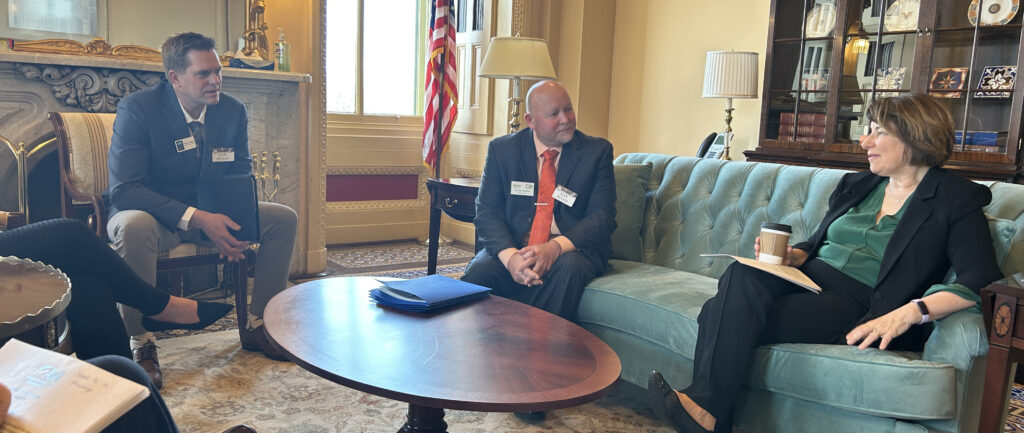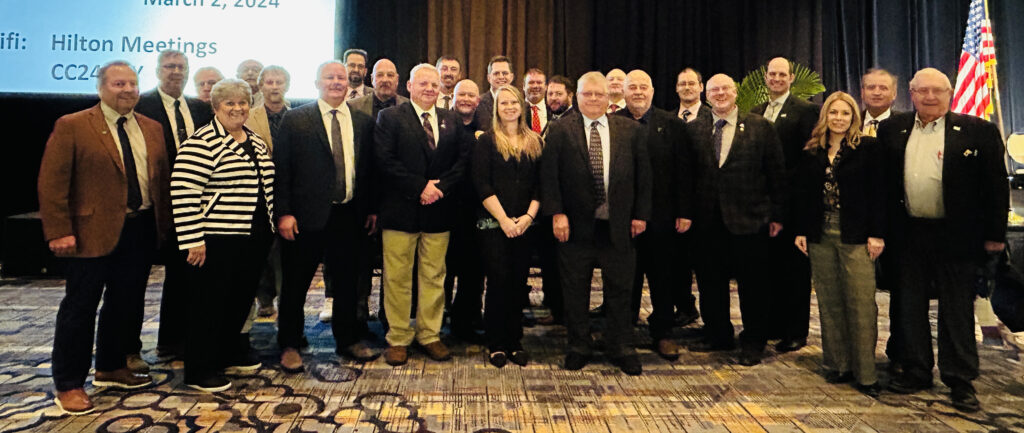The forthcoming Farm Bill was discussed among concerned and passionate citizens at the Mankato VFW during a dialogue session hosted by Minnesota Farmers Union.
“Farmers need certainty,” says Chuck Ackman, Sen. Amy Klobuchar’s outreach director. “Don’t do a six-month (extension).”
The future of the Farm Bill, however, remains vague and unclear.
“All we know for sure about the next Farm Bill is it will be printed on paper,” says Bruce Miller of Minnesota Farmers Union. “But it’s an important piece of legislation.”
About 50 members from the area, including Minnesota state Sen. Nick Frentz, state Rep. Clark Johnson and staffers for senators and congressmen, were on hand to discuss their concerns with a three-person panel from National Farmers Union and Minnesota Department of Agriculture.
Crop insurance, rural broadband access, the federal budget and the Supplemental Nutrition Food Assistance Program (SNAP) were all discussed at length.
“The bill needs to be drafted according to the needs of rural America,” says Rob Larew, National Farmers Union senior vice president of public policy and communications. “Whether it’s crop insurance, conservation or SNAP, these are all safety nets for our community.”
The current Farm Bill, which expires in fall 2018, represents less than two percent of the entire federal budget. SNAP makes up about 75 percent of the Farm Bill, and President Trump’s proposed budget would cut SNAP by $190 billion (about 25 percent) over 10 years.
“When you take all those portions of the budget that no one’s willing to cut – like Social Security, Medicare, Medicaid, interest on our debt, defense spending –suddenly the ag part of the budget become a much bigger target,” says Lawler, who has worked on four Farm Bills. “I always ask folks to look at it in context, that the Farm Bill takes up such a small part of the overall budget.”
Forty seven million American are on SNAP, and economic reports indicate $5 in SNAP benefits generate about $10 in economic activity. In Minnesota, more than 85 farmer’s market accept SNAP. Allegations of SNAP fraud are a myth, says Sophia Lenarz-Coy, associate director of Hunter Solutions Minnesota.
“We’re really interested in protecting SNAP. It’s an important story to tell in terms of the economic impact it has for growers,” Lenarz-Coy says. “A lot of people are just doing the best they can. SNAP has a great track record and brings a lot of money into our state. And it’s the moral thing to do, right? People should be able to afford food, and there are people struggling to make ends meet farming who qualify for SNAP. ”
Rep. Johnson believes it’s important the farm bill is broad to garner more support.
“We need these other additions to add to the political coalition,” he says.
Sen. Frentz agreed with others who stated rural broadband is in dire need of upgrades.
“I’m surprised rural broadband is not more of an issue,” he says. “Farmers need better broadband access; one of the best things we can do for them is to make sure they have internet, so I encourage everyone to speak up on that issue.”
Lawler says he would take the crowd’s comments back with him to Washington, D.C.
“We’re very much engaged with all the messages we’re hearing in meetings like this, and making sure they are being delivered to our congressional members,” he says. “The committees are very much engaged in getting this Farm Bill up and running.”
Tags: Farm Bill




